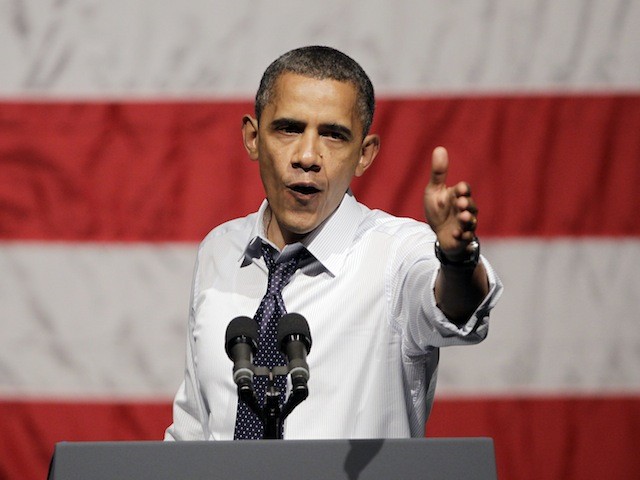
States are receiving hundreds of millions of dollars in “discretionary spending,” to fund universal preschool, Barack Obama’s new pet project. Caitlin Emma at Politico writes that the states are receiving the cash even though “Congress hasn’t seriously considered paying for President Barack Obama’s universal preschool proposal.”
Race to the Top early learning grants and ObamaCare funds are providing the assistance to states to implement preschool and early childcare programs.
Obama’s plan has come together fairly easily. Department of Education (DOE) Secretary Arne Duncan has been visiting states to stump for universal preschool, while back in Washington the Obama administration has already hired a new director for its Office of Early Learning. Jacqueline Jones came on board to head the effort in November of 2011.
“Establishing an early learning office reinforces this administration’s unwavering effort and determination to address the essential needs of our youngest learners,” Jones said in a press release.
Jones will oversee the Early Learning Challenge funded by the stimulus bill’s Race to the Top endeavor, the same program that has incentivized states to adopt the Common Core national curriculum standards. According to Emma, Libby Doggett, former director of the Pew Home Visiting Campaign, was just confirmed as the Office’s second leader.
Race to the Top is jointly administered by the Departments of Education and Health and Human Services (HHS). The competitive program distributed nearly $500 million to states last year and will do the same this fall.
In early August, the DOE and HHS announced that six states–California, Colorado, Illinois, New Mexico, Oregon, and Wisconsin–will split approximately $89 million in supplemental early learning awards. The states originally received half the funding they requested in their Race to the Top applications.
Emma writes:
Money talks: The administration can herald the competition’s results to convince the public of its value and build pressure on legislators about the critical need for public investment in early childhood education.
In May, during a hearing on a review of the president’s fiscal year 2014 budget plan for the DOE, House Education and the Workforce Chairman John Kline (R-MN) said:
I’d like to begin with a brief overview of what’s in the administration’s budget for the upcoming fiscal year. The president has asked for more than $71 billion in discretionary funding for the Department of Education – up $5 billion from last year’s request and $3 billion from the year before.
This is on top of a request for $7 billion in mandatory funding for Pell Grants, $17.5 billion to “reform the teaching profession,” and $1.3 billion for a new universal preschool program – bringing the total budget proposal to a staggering $97.1 billion.
Without question, the president’s budget for the Department of Education has exploded over the last five years. The roughly $60 billion spent by the department in 2009 seems almost reasonable by comparison. Yet despite this significant increase in education spending, we haven’t seen any measurable improvements in student performance or graduation rates.
Emma writes, however, that Duncan has been unwavering in his passion for what he says are the long-term social and economic benefits of early childhood learning programs:
Some members of Congress are fully on board. Senate Health, Education, Labor and Pensions Chairman Tom Harkin (D-Iowa) and committee member Sen. Patty Murray (D-Wash.) have visited preschools in recent weeks and promise to file legislation this fall that would expand access and improve quality.
Emma concludes that the administration’s efforts could “mold public sentiment” and that by directing money to state-level programs the Obama administration can build a “national pre-K agenda.”

COMMENTS
Please let us know if you're having issues with commenting.